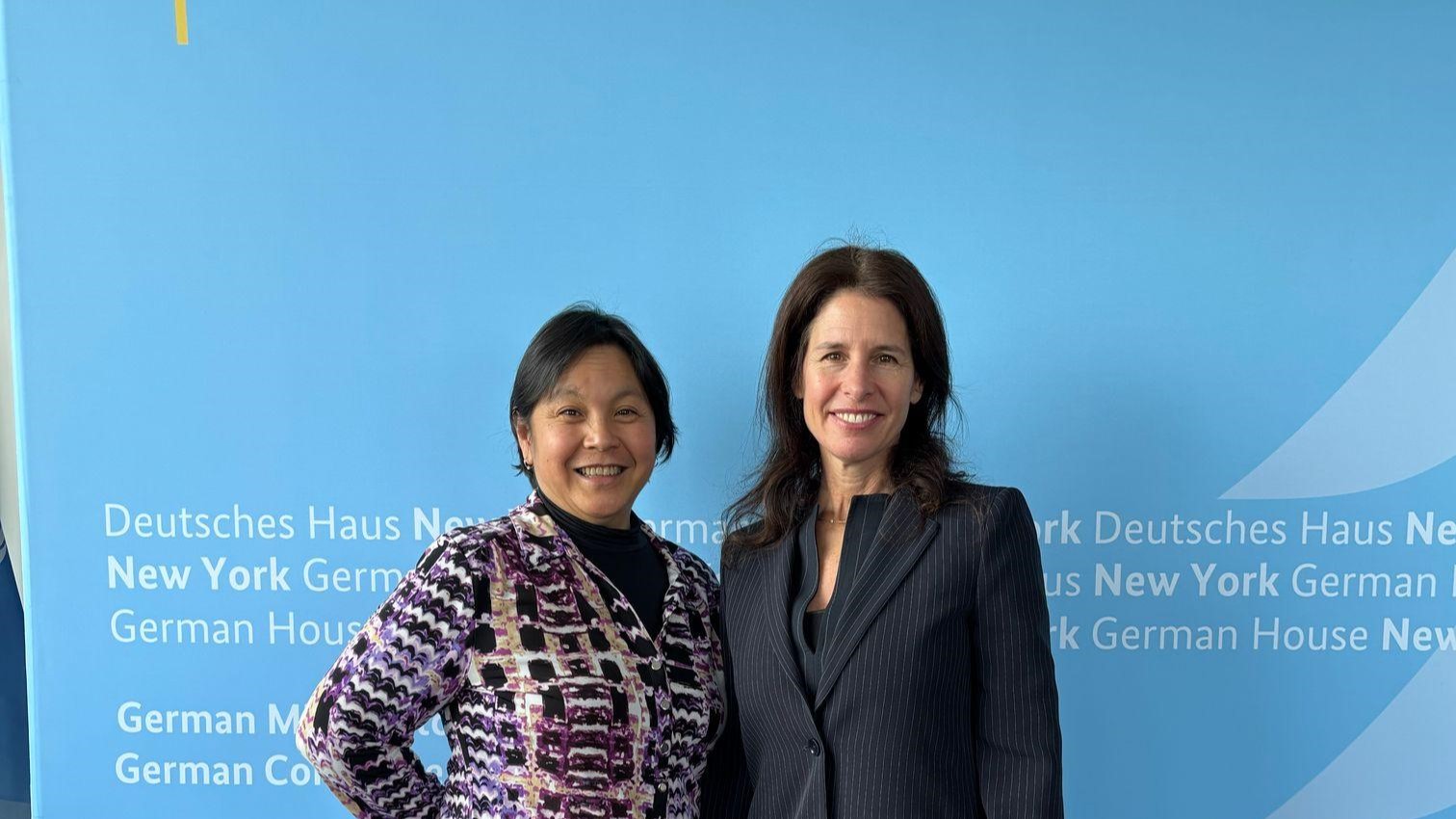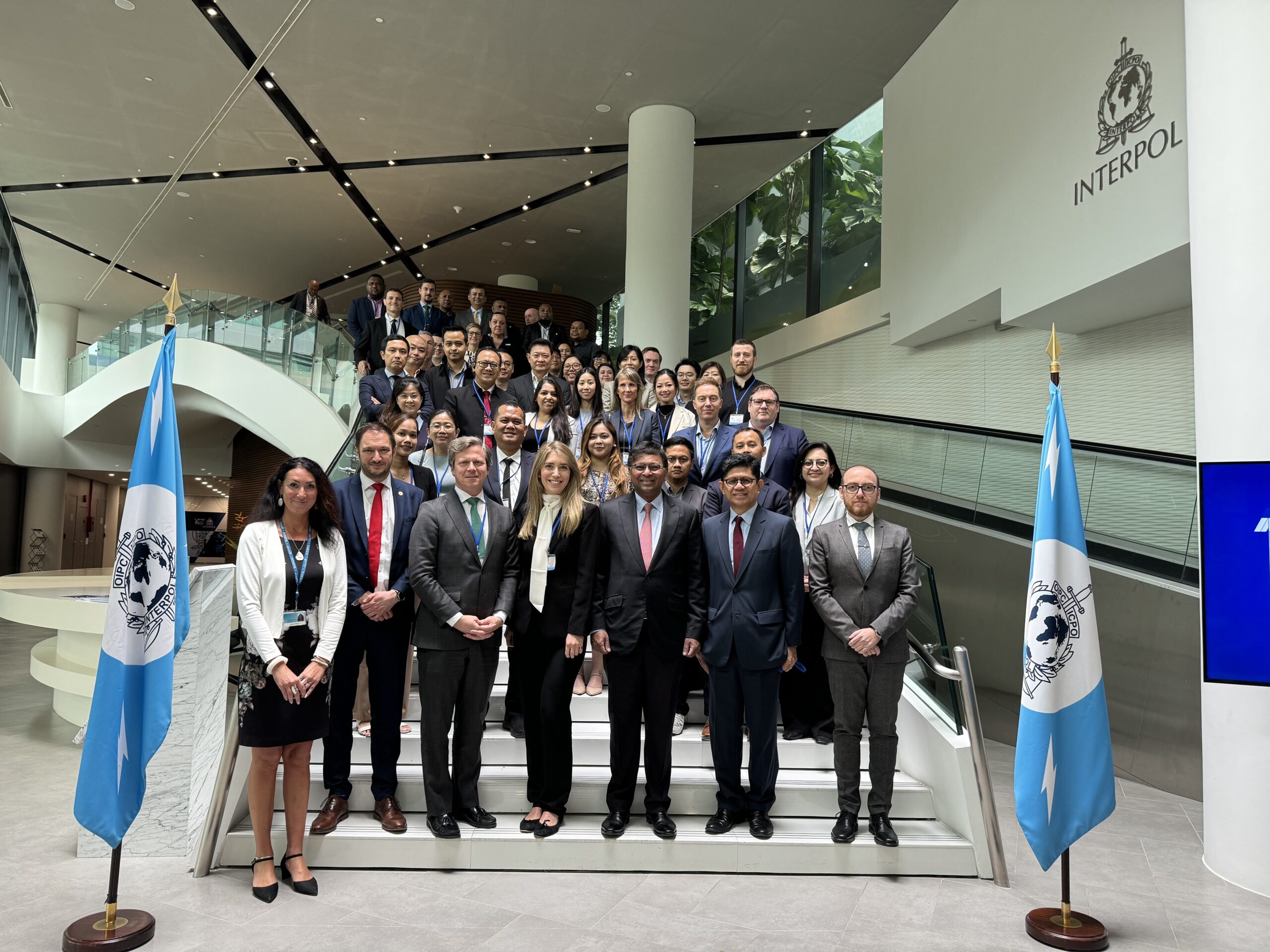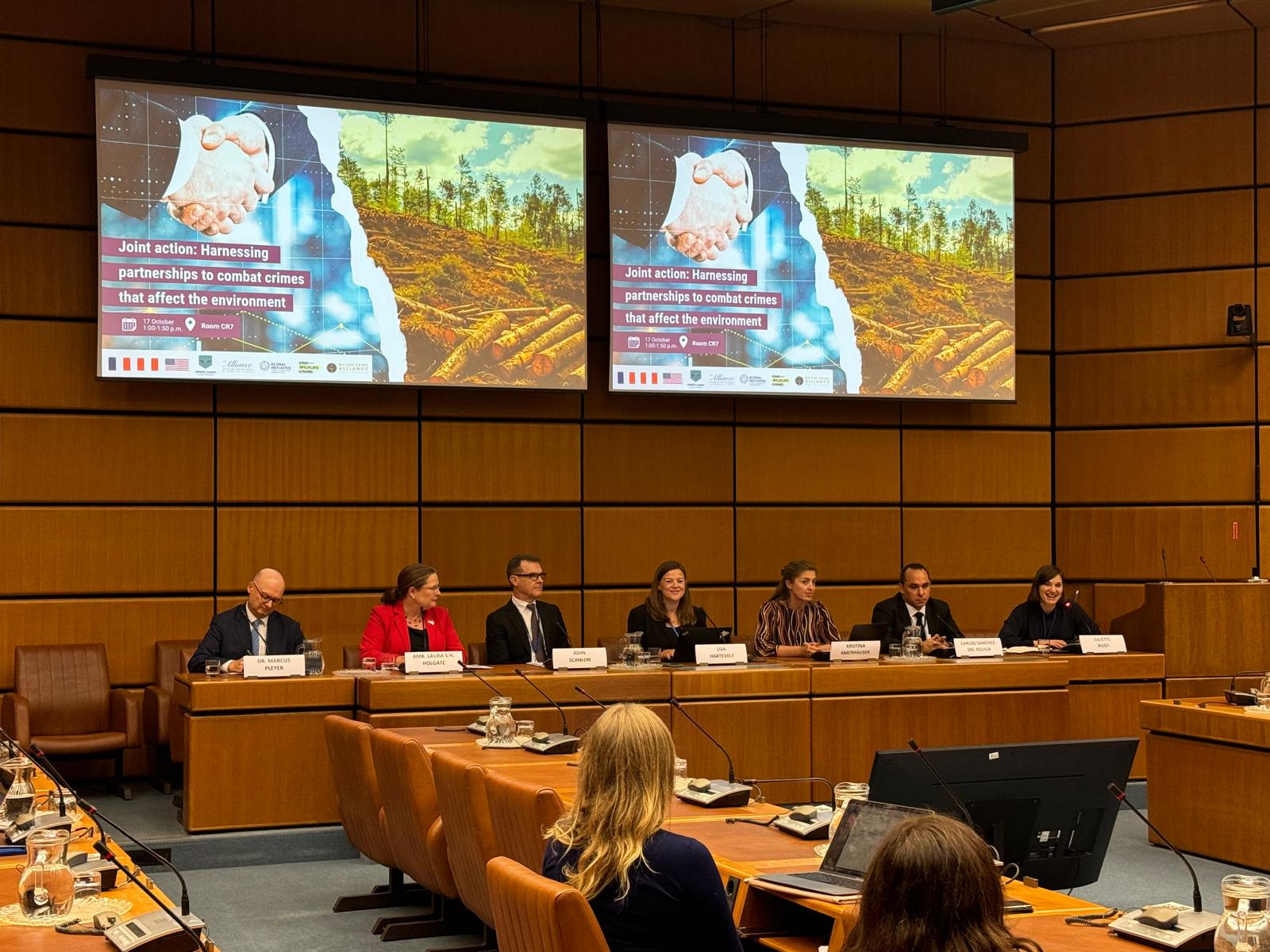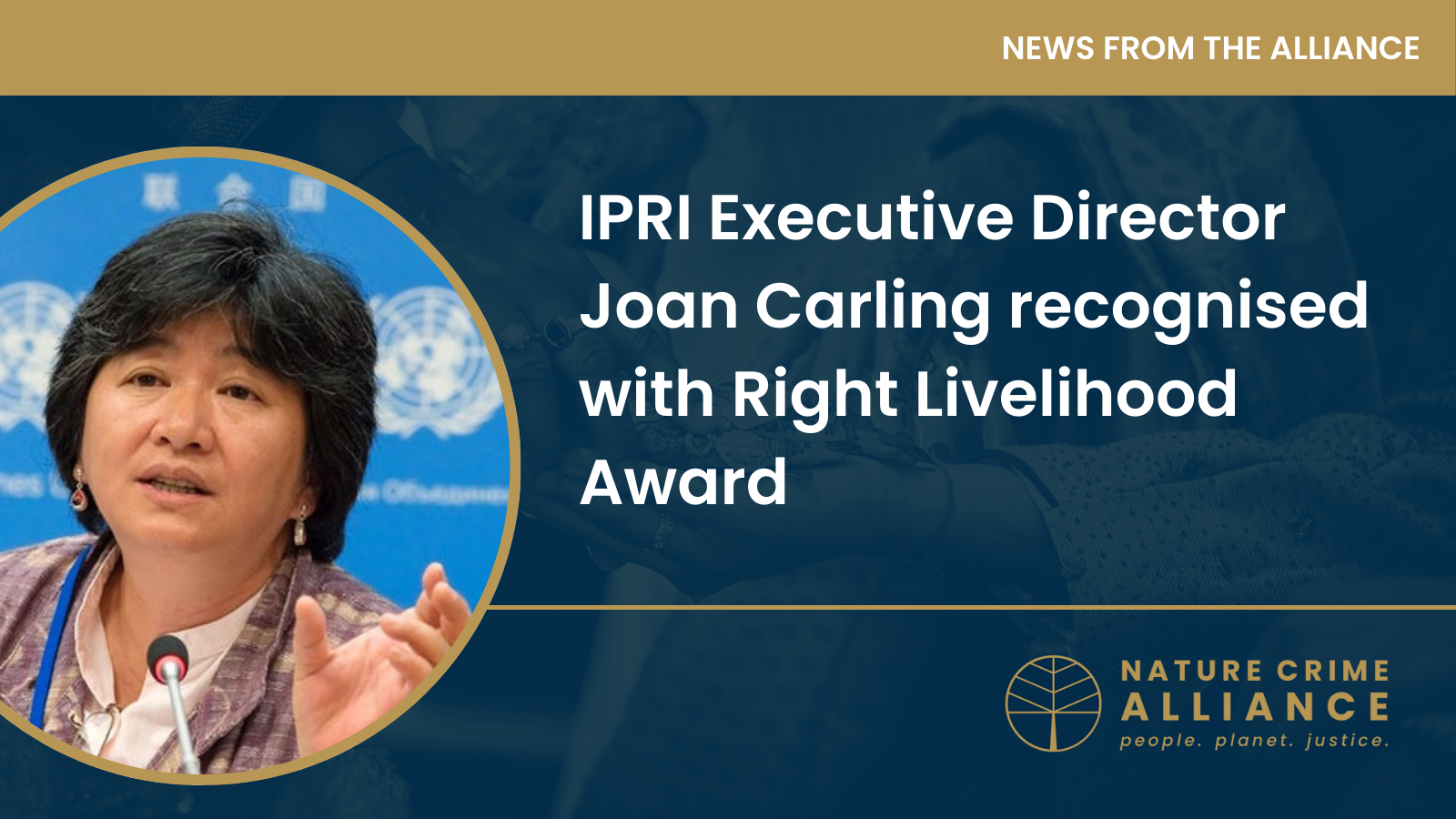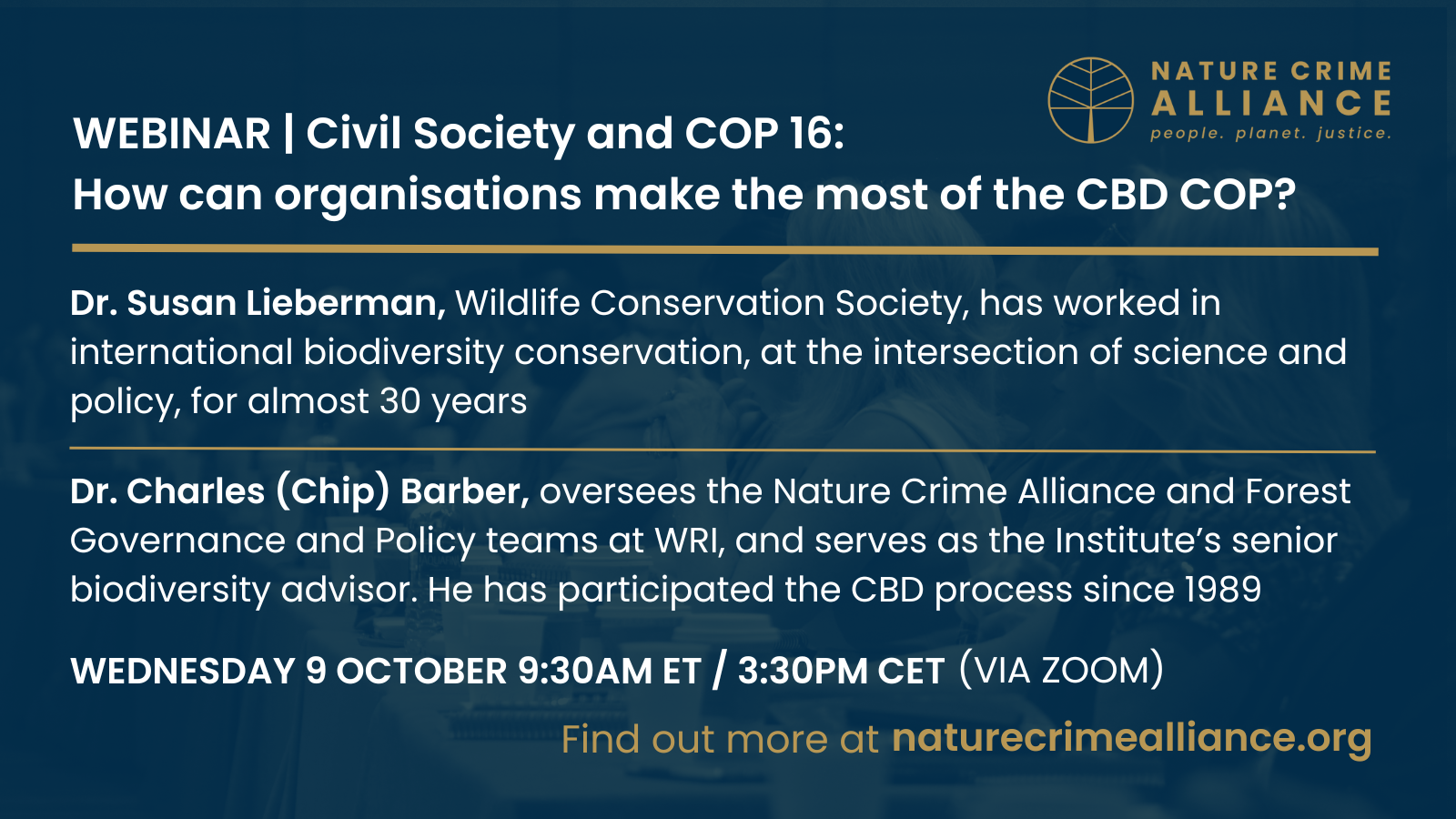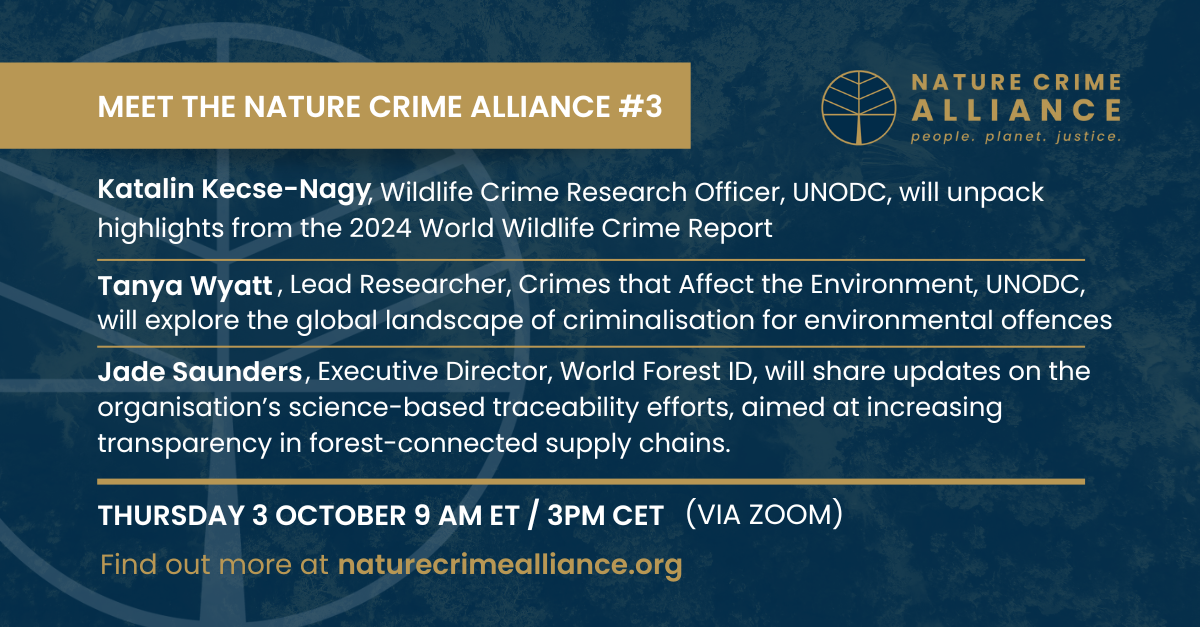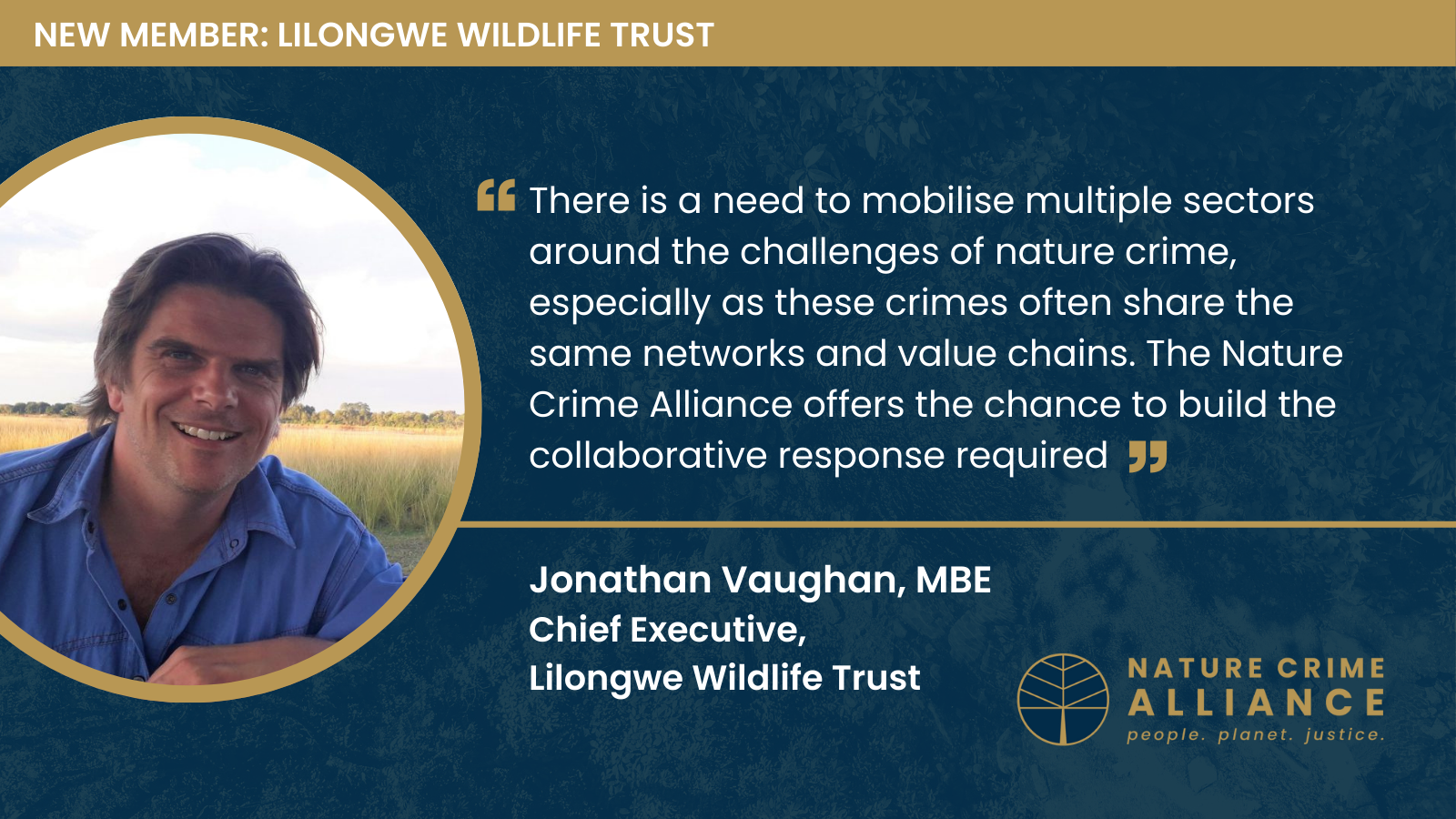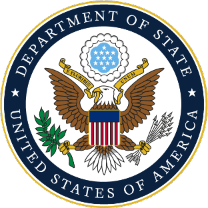Author: Daria Mahan
Alliance Secretariat supports government briefing on wildlife crime
The critical role of civil society, Indigenous Peoples, and journalism in supporting law enforcement efforts to counter wildlife crime was highlighted during a briefing of government representatives in New York this week.
Ruth Nogueron, Senior Associate, World Resources Institute, represented the Nature Crime Alliance in the meeting, ‘From Policy to Practice – Bridging Multilateral Action with Ground-Level Impact in the Fight Against Illicit Wildlife Trafficking’, convened by the Group of Friends on Combatting Illicit Wildlife Trafficking.
Co-chaired by Germany and Gabon, with coordination by Wildlife Justice Commission (WJC), the session brought together wildlife crime experts to share insights with policymakers focusing on this issue at the UN.
In her briefing, Nogueron highlighted how local communities are invaluable in the gathering of field intelligence, and emphasized how wildlife crime is interlinked with other crimes, requiring engagement with financial intelligence units (FIUs) and prosecution authorities. She also shared a case study demonstrating the value of investigative journalism in tackling these crimes.
Ruth’s recommendations to delegates included:
- Empowering Indigenous People and local communities as key contributors to field intelligence. The Nature Crime Alliance is working with Indigenous Peoples’ Rights International (IPRI) on this issue.
- Utlilising civil society organisations to help bridge gaps between communities, enforcement, and policy professionals.
- Enhancing cross-sector crime convergence approaches.
- Strengthen investigative journalism to expose trafficking networks.
- Addressing the critical yet overlooked role of wildlife rescue centers.
Other Nature Crime Alliance participants in the briefing included Ghislain Ondias Okouma, Permanent Representative of Gabon to the UN; Olivia Swaak-Goldman, Executive Director, WJC (which organised the meeting in partnership with the German government); and John Scanlon, Chair, Global Initiative to End Wildlife Crime. INTERPOL was also represented, with Operation Thunder – the major law enforcement success against international wildlife crime, which saw coordination across 138 countries and regions – being cited.
First Asia-Pacific Regional Private Sector Dialogue launched in Singapore
The Nature Crime Alliance’s efforts to bolster the private sector’s capacity to identify and disrupt illicit financial flows linked to crimes against the environment took a new step this month with the first Asia-Pacific Regional Private Sector Dialogue, which convened in Singapore, on 3-4 December.
The meeting, organised by the UN Office on Drugs and Crime (UNODC) supported by the Nature Crime Alliance, INTERPOL and United for Wildlife, brought together anti-money laundering/countering the financing of terrorism government authorities, the private sector, and civil society organisations from across the Asia Pacific region, with the goal of strengthening efforts to tackle financial crimes linked to environmental crimes. The regional Dialogue, which will continue in 2025, allows participants to develop and share their understanding of risks and mitigation measures relating to the financing of crimes that affect the environment, mainly focusing on illegal deforestation and the illicit extraction of minerals the in Asia Pacific.
The event, held at the INTERPOL Global Complex for Innovation in Singapore, was split into three roundtable sessions, each focused on addressing a different problem set, including the use of financial intelligence to identify crimes that affect the environment, internal policies and governance to address these crimes, and the role of financial institutions in combating these crimes and promoting sustainable practices.
The Dialogue was co-chaired by John Edward Conway, Executive Secretary of the Wolfsberg Group and Laode M. Syarif, Executive Director of Kemitraan and former Commissioner of the Corruption Eradication Commission (KPK), Indonesia.
Dr Madan Oberoi, Executive Director of Technology and Innovation, INTERPOL, provided welcoming remarks, stating: “Governments, private sector, and civil societies must ensure that financial systems support stability, not exploitation. This means aligning banking with national priorities to fight financial crimes that harm the environment, demanding transparency in businesses, and supporting stronger regulations that follow global environmental standards.”
The keynote address was delivered by Raja Kumar, Senior Advisor (International), Ministry of Home Affairs, Singapore, and former President of the Financial Action Task Force (2022-2024).
More than 90% of participants said that the Dialogue had given them a better understanding of the investigative and technical capabilities that banks and civil society organisations are deploying to disrupt the threat of financial crimes related to environmental crimes, while 92% stated that the Dialogue had enabled them and/or their institution to identify new risk indicators, red flags and suspicious transactions related to environmental crimes.
For more information, contact Lynn Schlingemann, Senior Associate, Financial Crime and Corruption, Nature Crime Alliance Secretariat: lynn.schlingemann@wri.org
Value of multi-sector partnerships in fighting nature crime highlighted during UNTOC COP
The transnational and organised nature of environmental crimes, which often include financial offences and corruption, has made the issue a priority for the global Financial Action Task Force (FATF), according to its former President, Dr Marcus Pleyer.
Speaking at the UN Convention Against Transnational Organised Crime (UNTOC) 12th Conference of the Parties (COP12) in Vienna, Pleyer – who headed FATF between 2020 and 2022 – highlighted the scale of these crimes.
“The amount of money that is laundered from environmental crimes is nearly $300 billion a year,” he said. “This is why we have put environmental crimes on our agenda.”
Pleyer was speaking at an official UNTOC COP12 side event held in partnership between the governments of France, Peru, and the United States, as well as the Wildlife Justice Commission, the Alliance of NGOs on Crime Prevention and Criminal Justice, the Global Initiative to End Wildlife Crime (EWC), Global Initiative against Transnational Organized Crime (GI-TOC), and the Nature Crime Alliance.
Moderated by Lisa Hartevelt, Director of External Affairs, WJC, ‘Joint Action: Harnessing partnerships to combat crimes that affect the environment’, had the purpose of highlighting the critical role that civil society organisations (CSOs) play in supporting state parties to the UNTOC in combatting crimes that affect the environment.
Watch the session in full
In the opening remarks of the event, the Co-Chairs of the Group of Friends on Crimes that Affect the Environment, Juliette Bigot from the Permanent Mission of France and Carlos Sanchez del Aguila from the Permanent Mission of Peru, highlighted how their partnership with CSOs was fundamental in increasing awareness of these crimes and the need for international action.
Increasing engagement between governments, civil society and other sectors, including finance, is a key aim of the Nature Crime Alliance, which supports the Global Private Sector Dialogue (PSD) on financial crimes linked to crimes that affect the environment, in partnership with UNODC, INTERPOL, and UFW.
Dr Pleyer, who currently serves as Deputy Director General, Germany’s Federal Ministry of Finance, and Chairs the European iteration of the PSD, underscored the importance of the Dialogues, noting that prior to the initiative, 80% of private financial participants did not interact with law enforcement and government authorities, and 66% did not interact with NGOs.
The session also heard from John Scanlon, Chair of the Global Initiative to End Wildlife Crime (EWC), a founding member of the Nature Crime Alliance, and Sarah Maston, Co-Chair of the EWC’s Impact Technology Champions. Scanlon and Maston remarked upon the pressing need for scale in conservation technology. Further highlighting the need for collaboration between different stakeholders, Kristina Amerhauser, Senior Analyst at GI-TOC, spoke of the ECO-SOLVE platform. This platform facilitates OSINT data-sharing to law enforcement, government, and private sector actors, since lack of data is one of the most common problems stakeholders face when combatting crimes that affect the environment.
Final remarks were delivered by Laura Holgate, US Ambassador to the Vienna Office of the UN. She spoke of the US government’s role in funding the Nature Crime Alliance as recognition of the role that CSOs can play in bringing cross-sectoral stakeholders together for effective results.
Latest Global Private Sector Dialogue Convenes
The latest Global Private Sector Dialogue on Disruption of Financial Crimes related to Crimes that affect the Environment, organised by UNODC with the support of the Nature Crime Alliance Secretariat, convened on Wednesday, October 16, 2024. More than a hundred representatives from financial intelligence units, law enforcement, and the private sector joined the sessions to hear from subject matter-experts on tackling financial crime linked to nature crime.
The Global Private Sector Dialogue was chaired by John Edward Conway, Global Head of Financial Crime Compliance Framework and Policies at Santander Bank, and was co-chaired by Lynn Schlingemann, Senior Associate, Financial Crime and Corruption, Nature Crime Alliance Secretariat.
The Dialogue consisted of three roundtable discussions. The first, on Intelligence Requirements, focused on investigative methods and new technologies for detecting financial crimes related to crimes that affect the environment. Financial crime analysts from Absa, HSBC, and Standard Bank shared case studies and highlighted learnings derived from them, as well risk indicators and red flags that were present in those case studies.
In the second roundtable discussion, on Policy Requirements, representatives from Standard Chartered delved into banking policy and corporate governance for supporting national policies to mitigate risks of financial crimes related to the environment, more specifically emerging threats on environmental and financial crime.
During the third and last roundtable discussion, experts from WWF presented the newly developed Environmental Crimes Financial Toolkit, while representatives from FACT Coalition explained their work on illicit finance and environmental crime.
The Dialogues are part of the Nature Crime Alliance’s ongoing work to bolster capacity across the private and public sectors to tackle financial crime related to nature crime.
For more information, contact Lynn Schlingemann, Senior Associate, Financial Crime and Corruption, Nature Crime Alliance Secretariat: lynn.schlingemann@wri.org
IPRI Executive Director Joan Carling recognised with Right Livelihood Award
Joan Carling, the Executive Director of Indigenous Peoples’ Rights International (IPRI), has been recognised with an award for or her defence of Indigenous communities, lands, and culture at the grassroots, regional, and international levels.
Carling is the recipient of the Right Livelihood Award 2024 for her role in amplifying the voices of Indigenous Peoples across the Philippines, Asia, and globally, with a focus on combating the systemic marginalisation and criminalisation of Indigenous communities. Carling, a Filipino Indigenous activist, has been defending the rights of Indigenous Peoples for more than 30 years. Her work focuses on recognition and protection of Indigenous Peoples’ rights, including land rights, self-determination, and environmental protection.
IPRI is a founding member of the Nature Crime Alliance, and partners with the Alliance Secretariat on the Working Group for Indigenous Peoples’ and Frontline Defenders.
Commenting on her award, Carling said: “Indigenous Peoples face constant struggle: we’re evicted from our lands for both extractive projects and the green transition, yet our social development is ignored in the context of so-called sustainable development. All of us need to think about how we use our natural resources sustainably for the benefit of everyone and not the few.”
The Right Livelihood Award highlights courageous people solving global problems. It was founded in 1980 to create new prizes to honour individuals committed to advancing social justice and environmental causes.
Tsveti Bandakova, Programme Manager for the Nature Crime Alliance, said: “Joan is an inspirational champion of Indigenous Peoples around the world, and we are delighted that she has been recognised with this prestigious award.
“Joan has also been a key supporter of the Nature Crime Alliance, serving on our Steering Committee and partnering with us to create a working group that amplifies the voices of Indigenous Peoples and frontline defenders. We look forward to working with her and IPRI on this critical issue and offer her our warmest congratulations on the award.”
WEBINAR: Civil Society and COP 16 – How can organisations make the most of the CBD COP?
The upcoming Conference of the Parties of the UN Convention on Biodiversity (CBD COP) in Cali is a major opportunity to make global progress on protecting nature. But as with all high-level international fora, the CBD COP has its fair share of complexity.
This webinar aims to help civil society organisations better understand how the CBD COP works, and provide advice on how to make the most of their participation in this key global summit.
Participants will hear insights from two experts with extensive experience in engaging with the CBD process, and will have the chance to ask questions and share ideas.
Speakers
- Dr Susan Lieberman, Vice President, International Policy, Wildlife Conservation Society (WCS): Sue Lieberman has worked in international biodiversity conservation, at the intersection of science and policy, for almost 30 years, including extensive experience with international wildlife trade, wildlife trafficking, and intergovernmental policy.
- Dr Charles (Chip) Barber, Director, Natural Resources Governance and Policy, World Resources Institute: Chip Barber oversees the Nature Crime Alliance and Forest Governance and Policy teams at WRI, and serves as the Institute’s senior biodiversity advisor. He has participated the CBD process since 1989.
The webinar takes place on Zoom on Thursday 9 October, 9:30am ET / 2:30pm UK time / 3:30pm CET. There will be interpretation available for French, Portuguese and Spanish.
Webinar: Meet the Nature Crime Alliance #3
The third edition of the ‘Meet the Nature Crime Alliance’ webinar series takes place on Thursday 3 October, covering issues across wildlife crime, timber traceability, and the global landscape of criminalisation for environmental offences.
This edition will include two presentations from the UN Office on Drugs and Crime (UNODC) on their recent pertinent research publications.
Katalin Kecse-Nagy, Wildlife Crime Research Officer, UNODC, will share highlights from the 2024 World Wildlife Crime Report. Produced by UNODC, the report presents characteristics of the illegal wildlife trade, the harms caused by – and the drivers of – wildlife crime, and approaches that have worked to stop these crimes.
Tanya Wyatt, Lead Researcher, Crimes that Affect the Environment, UNODC, will unpack highlights from the Landscape of Criminalization report, which analyzes the state of criminalization of violations of environmental offences across nine environmental areas – deforestation and logging, mining, fishing, air, noise, soil, and water pollution, waste and wildlife. The analysis also includes the penalties for violations and whether this meets the definition of serious crime set out in the UN Convention against Transnational Organized Crime of at least four years in prison.
Jade Saunders, Executive Director of World Forest ID, will share updates on the organisation’s science-based traceability efforts, aimed at increasing transparency in forest-connected supply chains. By identifying the true origin of samples, World Forest ID’s origin models have directly supported law enforcement in tackling the trade of deforestation-linked commodities, contributing to recent enforcement cases and attracting global media attention.
The webinar takes place on Zoom on Thursday 3 October, 9am ET / 2pm UK time / 3pm CET.
Register for the webinar at this link.
View previous webinars in the series:
Lilongwe Wildlife Trust boosts Alliance’s efforts in Malawi
The Nature Crime Alliance is pleased to welcome the Lilongwe Wildlife Trust as its latest member.
The Trust plays a vital role in disrupting the illegal wildlife and forest trade in Malawi, and delivers internationally renowned wildlife rescue services. It also supports conservation justice, running a court monitoring programme and developing specialist tools for magistrates, judges, prosecutors, and investigators.
By joining the Alliance, the Trust will be supported in developing new cross-sector partnerships with which to address specific challenges in Malawi and beyond. In turn, the Trust brings a wealth of knowledge and experience that will support other Alliance members in their efforts to fight nature crime. The government of Malawi joined the Alliance in February this year.
Jonathan Vaughan MBE, Chief Executive of Lilongwe Wildlife Trust, commented: “There is a need to mobilise multiple sectors around the challenges of nature crime, especially as these crimes often share the same networks and value chains. The Nature Crime Alliance offers the chance to build the collaborative response required, and to raise the profile of these crimes and the challenges they present.”
With Malawi facing a range of environmental and security threats including illegal logging, mining, wildlife trafficking and fisheries crime in Lake Malawi, the Trust will engage with Alliance members to find solutions aimed at ending these activities.
Dr Charles Barber, Director of the Nature Crime Alliance, said: “The strong membership interest we’ve seen since launching the Alliance shows there is a real demand for multi-sector cooperation in fighting nature crime. We’re excited that Lilongwe Wildlife Trust is joining these efforts, and we look forward to working with them and other members to develop and scale solutions that protect Malawi’s natural resources and biodiversity.”
